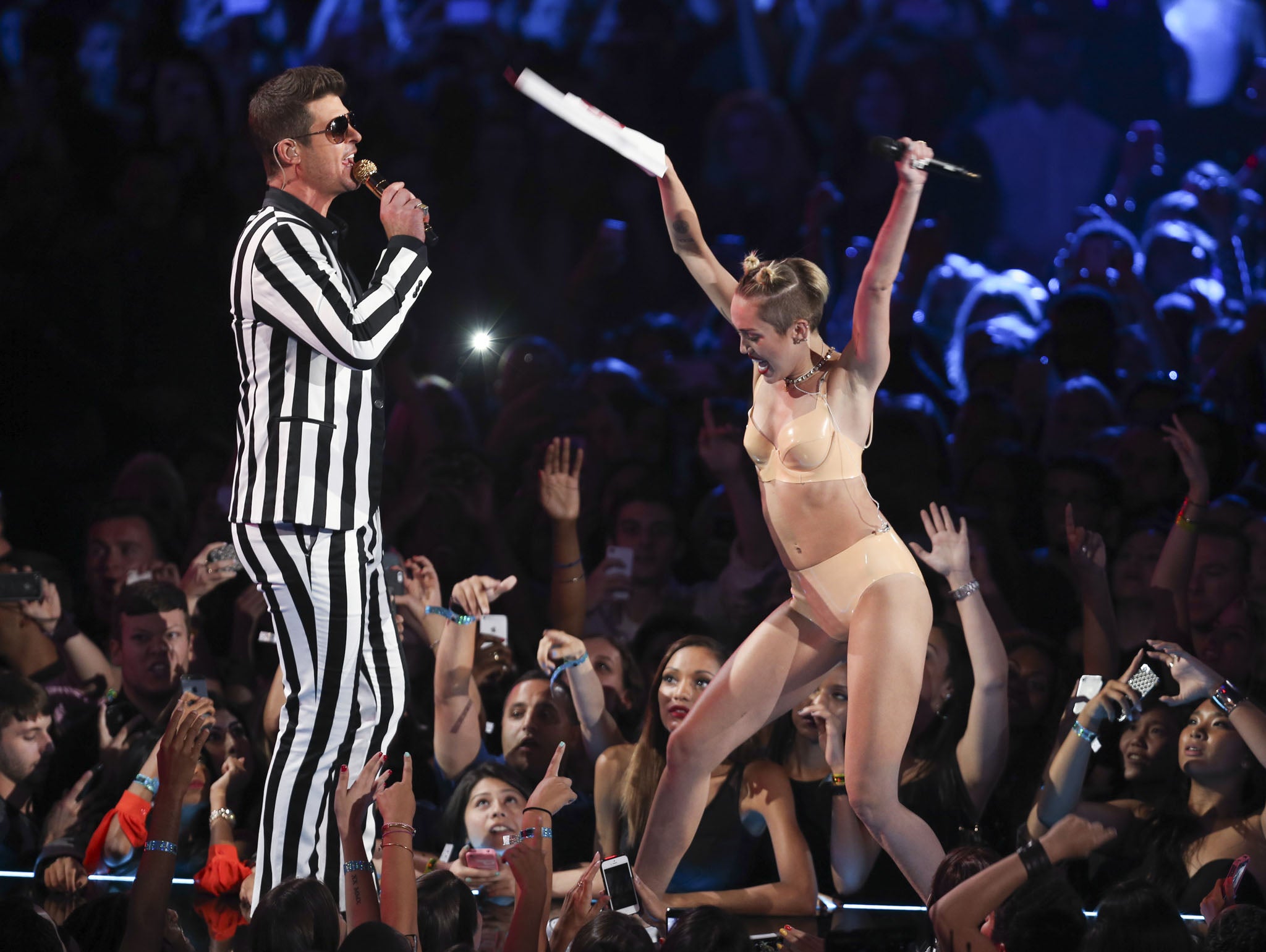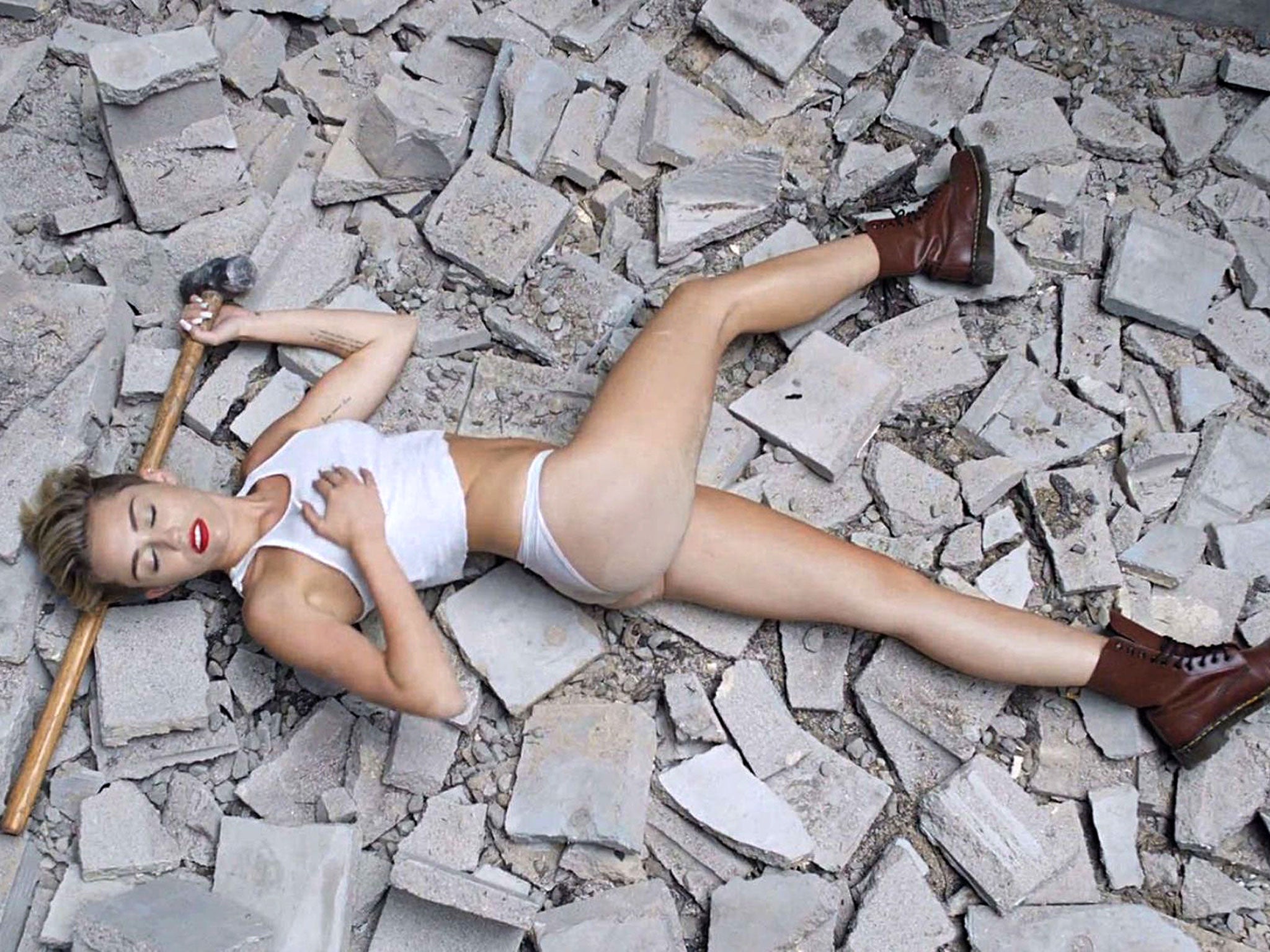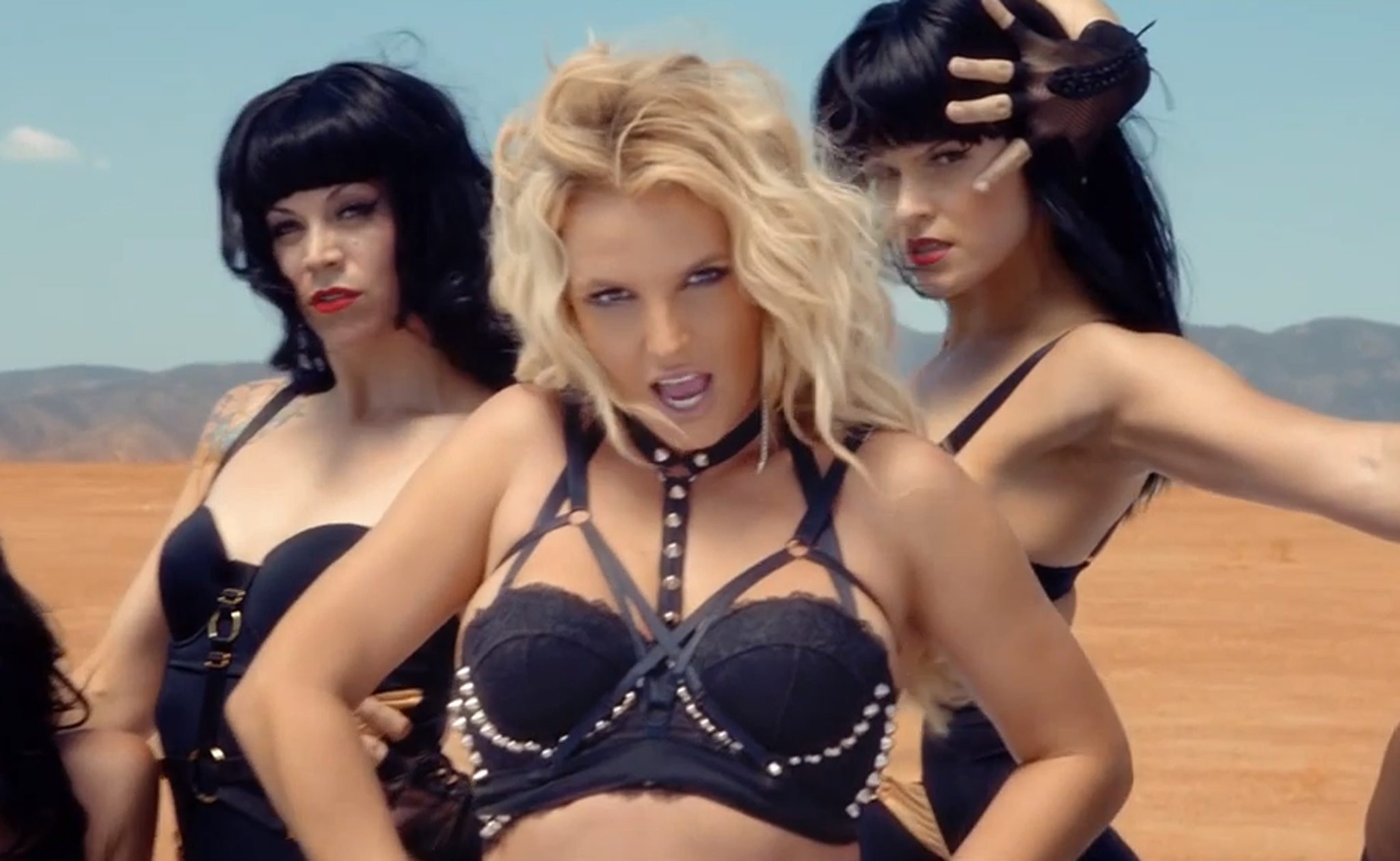Lily Allen: New music video sticks it to the misogynistic music man
Explicit music videos are revolting parents and politicians alike. But as Lily Allen shows, there's a different way to revolt
Your support helps us to tell the story
From reproductive rights to climate change to Big Tech, The Independent is on the ground when the story is developing. Whether it's investigating the financials of Elon Musk's pro-Trump PAC or producing our latest documentary, 'The A Word', which shines a light on the American women fighting for reproductive rights, we know how important it is to parse out the facts from the messaging.
At such a critical moment in US history, we need reporters on the ground. Your donation allows us to keep sending journalists to speak to both sides of the story.
The Independent is trusted by Americans across the entire political spectrum. And unlike many other quality news outlets, we choose not to lock Americans out of our reporting and analysis with paywalls. We believe quality journalism should be available to everyone, paid for by those who can afford it.
Your support makes all the difference.Most pop music videos are about projecting impossible levels of glamour and gloss. So when an artist puts out a video that begins with her receiving liposuction on an operating table while being told that she has really let herself go, you know she's going to have something subversive to say.
And this is exactly how Lily Allen marked her return to music yesterday afternoon after a four-year hiatus: four minutes and 23 seconds of social comment delivered in her characteristic sing-song vocals.
"Um… I had two babies," the 28-year-old says at the start of the video to "Hard Out Here", while a suited male executive – her manager, perhaps, or a record company minder – looms over her, instructing the surgeon to "take some more out".
Scroll to bottom to watch video
What follows is a pretty wicked parody of the modern pop video. At the encouragement of her "manager", Allen is urged to dance provocatively, throw money around and fellate a banana (her manager helpfully shows her how to do it) while bikini-clad dancers gyrate around her.
It's not only the visuals that call out the sexism of the music business. Lyrically, it's a feminist tour-de-force that addresses the pressure to look a certain way ("You should probably lose some weight, because we can't see your bones"), the increasing sexualisation of women in the industry ("Don't need to shake my arse for you cos I've got a brain"), and double standards ("If I told you 'bout my sex life, you'd call me a slut/ When boys be talking 'bout their bitches, no one's making a fuss").
2013 has been the year of the "twerk", the sexually provocative dance made famous by Miley Cyrus at the MTV Video Music Awards, and which was this week revealed to be the 13th most commonly used word on the internet, according to the Global Language Monitor.

It is the year that Cyrus also straddled a wrecking ball naked in a video directed by Terry Richardson, the photographer whose "porn chic" aesthetic Cyrus has used to sever all ties with her past as Disney's Hannah Montana. Rihanna's video for "Pour it Up", featuring the singer in a jewelled bra and dollar-stuffed thong, survived 10 minutes before it was pulled down by YouTube for flashing too much flesh.
The biggest song of the summer, Robin Thicke's "Blurred Lines", was widely denounced for being degrading to women (and, by some critics, for glorifying rape) and led to its being banned in 20 universities around the UK. The video, for those who haven't seen it, featured naked models parading around men in suits.
"I would say we have definitely entered a new chapter," says Christopher Sweeney, the director responsible for Allen's comeback video. "I was pretty shocked by "Pour it Up" and I didn't think I was very shockable. There's a one-upmanship thing going on that is quite extraordinary. With Miley you just think, what is she going to do next?"
Enjoy unlimited access to 100 million ad-free songs and podcasts with Amazon Music
Sign up now for a 4 month free trial (3 months for non-Prime members)
Enjoy unlimited access to 100 million ad-free songs and podcasts with Amazon Music
Sign up now for a 4 month free trial (3 months for non-Prime members)
For "Hard Out Here", Sweeney was tasked with a brief (from Allen) of doing "something ostensibly with the aesthetics of a mainstream pop video but turning it on its head". While Allen was involved throughout the creative process (in one scene that she was adamant about keeping in the video, she dances in front of silver balloons that spell out "Lily Allen has a baggy pussy" in a parody of the "Blurred Lines" video that saw the line "Robin Thicke has a big dick" displayed in a similar fashion), it's difficult to say how much of a contribution other artists have made to their music videos.
Sinead O'Connor's open letter to Cyrus spoke of her concern at the young star being "pimped", but it was, in fact, Cyrus who hired Richardson to direct her "Wrecking Ball" video. The director of "Pour it Up", Vince Haycock, left the project before its completion due to creative differences. The Twitter spat that followed between Haycock and Rihanna suggested that she wanted to push the video along a path that the director wasn't comfortable with.

But there are pop artists who feel that they are pushed too far by the industry. Last month, Britney Spears admitted to a radio station that she felt pressured to make hypersexualised music videos and had insisted on editing out half of the original footage for the video of her latest hit "Work Bitch" because she felt it was too explicit (though plenty of S&M scenes still found their way to the final cut).
"A lot of sex goes into what I do," she told the interviewer. "But sometimes I would like to bring it back to the old days when there was, like, one outfit through the whole video and you're dancing the whole video and there's not that much sex stuff going on." Spears, who appeared on the cover of Rolling Stone in her underwear at 17, certainly contributed to today's raunch culture, but it seems that even she is struggling to keep up with the industry's expectations of her now.
Allen's video has been released in the same week as the launch of Rewind&Frame, a new online campaign calling on the music industry and David Cameron to introduce cinema-style ratings on music videos.
The Labour MP Kerry McCarthy, who chaired a debate on the subject at the House of Commons this week, told The Independent on Sunday: "When I was young, videos showed Abba wearing tight trousers and wriggling their bottoms – now, it has become more sexualised. We're convinced there must be some harmful impact of this, even if it's just some women feeling more vulnerable and insecure."
It's not only the negative effect that these videos can have on these women and young girls – last week a survey found that 64 per cent of parents with daughters said that music videos had pushed them into premature sexual behaviour – that is deeply troubling; many female musicians have opened up about their treatment by the music industry.

In BBC Radio 6 Music's John Peel lecture in October, Charlotte Church blasted "the culture of demeaning women" and accused labels of pressing young singers to "present themselves as hypersexualised, unrealistic, cartoonish, as objects, reducing female sexuality to a prize you can win". Back in April, the acclaimed electro artist Grimes also spoke out about sexism in the industry in her blog post entitled, "I don't want to have to compromise my morals in order to make a living".
What is so encouraging about Allen's comeback video is just how many people are likely to watch it. While Grimes's post was excellent, she is something of a niche artist. Allen, on the other hand, has the reputation of a pop star who speaks her mind and has the sort of reach that could make a difference.
Forget twerking and nude thongs. When some of pop's biggest stars still refuse to identify themselves as feminists (Taylor Swift, Beyoncé and Katy Perry have all stared at their feet at the mention of the "f-word"), having a fully dressed mainstream female artist write a song featuring the phrase "the glass ceiling" and sing "We've never had it so good/ Yeah we're out of the woods/ And if you can't detect the sarcasm you've misunderstood" might just be the most radical statement a female artist today can make.
Join our commenting forum
Join thought-provoking conversations, follow other Independent readers and see their replies
Comments